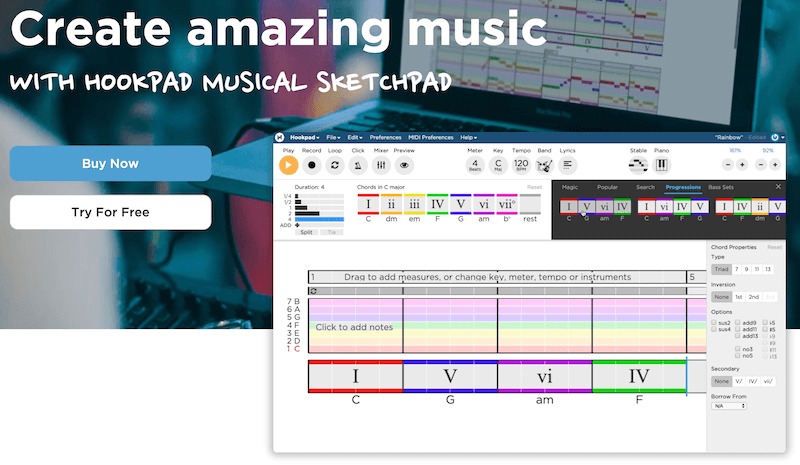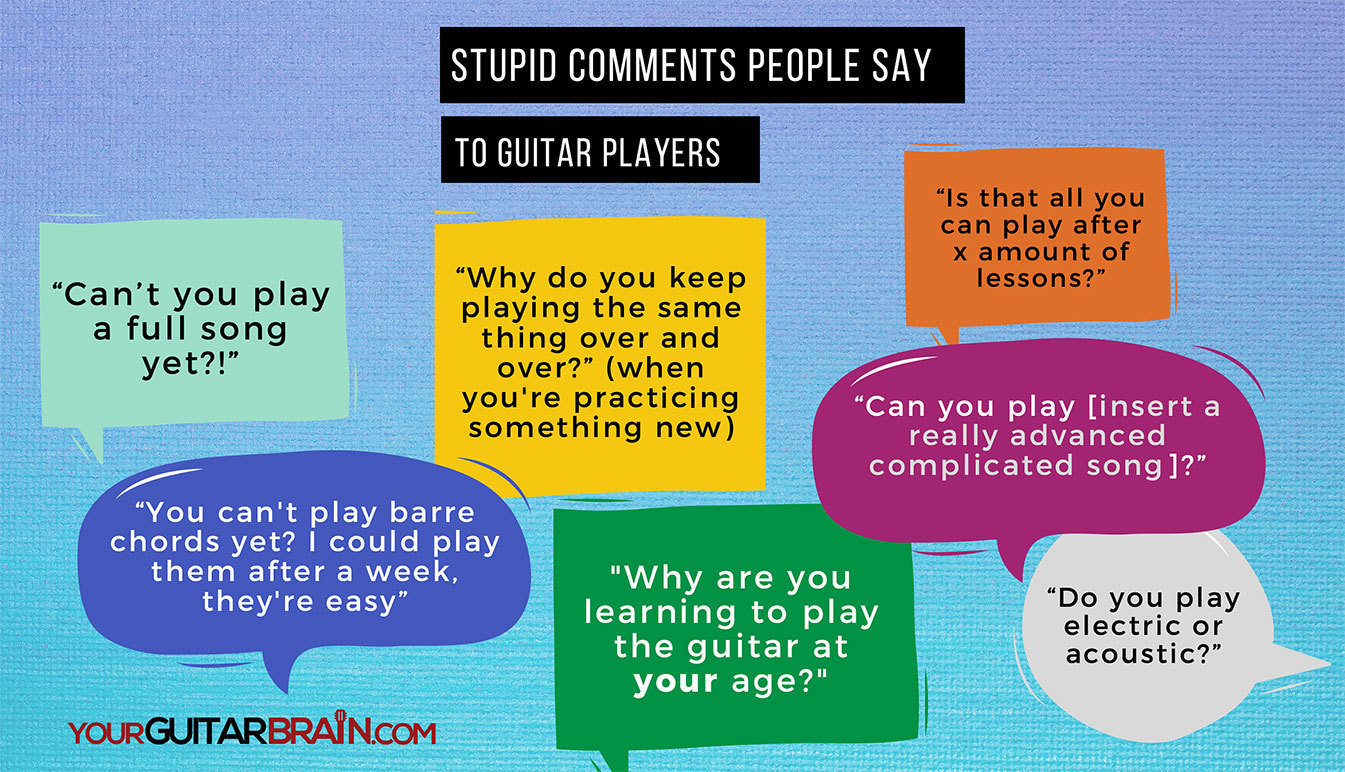Looking for the fastest way to learn how to play guitar? Look no further! These guitar hacks and tips will help you achieve astonishingly quick results, even if you’re a complete beginner.
Hey there, fellow guitar enthusiast! Ever thought about playing the guitar like a pro but haven’t got the time to spend all day practicing?
Well, guess what? You can achieve awesome results without endless hours of practice.
In this article, we’ll share eight super practical tips that will help you improve your guitar skills quickly and easily.
No need for complicated stuff – just straightforward advice to make your guitar journey a breeze that works.
Let’s go for it!
Who’s This Article For?
Beginner Guitarists: If you’re just starting out on guitar and want to know how to practice smartly, you’re in the right place.
Experienced Players: Even if you’ve been strumming for a while and feel a bit stuck or bored with your practice routine, we’ve got some cool ideas to re-energize your playing.
So, whether you’re a fresh-faced beginner or a guitar vet looking for some fresh tricks, these tips are here to help you level up your guitar game in no time.
1. Get in Tune Every Time
Have you ever heard a guitar that sounds like it’s been through a rough time? That’s probably because it wasn’t tuned properly.
The first and most important tip is to always tune your guitar before you start playing. Playing an out-of-tune guitar is not only unpleasant to listen to but also harmful to your musical ear.
You need to train your ear to recognise the correct pitch of each note and chord, and that can only happen if you play a well-tuned guitar.
There are many factors that can affect the tuning of your guitar, such as the quality of the strings, the temperature and humidity of the room, and how hard you strum or pick.
That’s why you need to check and adjust the tuning of your guitar every time you pick it up.
Related post: The Ultimate Guide to Changing Guitar Strings: Everything You Need to Know
Playing an out of tune guitar is not only unpleasant to listen to but also harmful to your musical ear.
The easiest way to tune your guitar is to use a digital tuner. Different types of tuners are available, such as clip-on tuners, handheld tuners, or pedal tuners.
You can also use an online tuner or a tuning app on your smartphone. Whatever tuner you choose, make sure you follow the instructions carefully and tune each string to the right note.
2. Get Your Posture Right
One of the keys to playing guitar well is to have a good posture. A good posture will help you avoid tension, fatigue, and injuries and improve your tone, accuracy, and speed.
Here are some simple posture tips to follow:
Tip 1 – Sit Up Straight
First things first, sit on a chair or a stool when you play, not a soft sofa. This helps you avoid slouching, which is a big no-no for good posture.
Be sure to get yourself a comfortable ergonomic studio chair to prevent discomfort and extend your practice sessions in comfort.
Tip 2 – Lift Your Leg
Next, here’s a cool trick: raise your lead leg a bit while sitting down to play. For right-handed players, that’s your right leg; for lefties, it’s the opposite. Boost your guitar playing comfort with a quality guitar footstool. (See tip 4).
Good posture helps you develop good playing technique.
Tip 3 – Watch the Neck
Here’s a common mistake: tilting your guitar neck downwards while playing. That’s not great for your posture. The guitar neck should be at a neutral straight angle or even slightly raised upwards.
Tip 4 – Invest in a Footstool
Consider grabbing an adjustable guitar footstool to nail that perfect posture. Good posture isn’t just about looking fancy; it helps you develop better playing techniques.
And guess what? Better techniques mean faster progress in your guitar skills.
A guitar footstool can help to raise your leg to a comfortable height, improve your posture, and reduce fatigue. Remember, “Good posture helps you develop good playing technique.” So, straighten up and rock on!
3. Take It Slow and Embrace the Metronome
When it comes to learning guitar, speed isn’t your main goal, especially in the beginning. Instead, focus on developing the habit of playing slowly, whether you’re practicing chord changes, riffs, or scales.
Even in their early stages, great guitarists prioritise accuracy, perfect timing, and solid technique over blazing speed. Avoid the common mistake of obsessing over how fast you can play something, as it usually results in messy and inconsistent playing.
Here’s the secret: Once you master good technique, faster playing will naturally follow.
Using a metronome during your practice sessions is crucial to developing a good sense of timing and speed. Start slow, and make sure it sounds clean and precise before gradually increasing your speed.
You can use a mechanical metronome, digital metronome or metronome app.
4. Stand it Up
Want to play your guitar more often? Keep it in sight! If your guitar is tucked away under your bed, collecting dust, you’ll likely forget about practicing.
Plus, what better way to show off your awesome six-stringed buddy than by proudly displaying it on a guitar stand for everyone to see?
Having a guitar stand has several benefits, such as:
- It makes your guitar more accessible and visible, which can motivate you to practice more often
- It protects your guitar from damage, dust, and humidity, which can affect its sound and appearance
- It saves space and keeps your room tidy, especially if you have more than one guitar
There are different kinds of guitar stands available, such as:
- Single A-frame guitar stands, which are simple and portable
- Wall brackets, which are fixed to the wall and save floor space
- Double guitar stands, which can hold two guitars at once
- Multiple guitar stand racks, which can hold several guitars
You can choose the guitar stand that suits your needs, preferences, and budget. Just make sure you place it in a safe and convenient spot in your room.
5. Embrace the Pain (It Gets Better!)
Let’s keep it real: when you start playing guitar, your fingers are in for a workout, and yes, it’s going to hurt a bit.
Surprisingly, it’s not just your fingertips that will feel the pain. Muscles and tendons in your hands, arms, and neck may join the “ouch” chorus. And no, it’s not just drummers who get a workout during practice!
But here’s the silver lining:
The soreness fades surprisingly fast as your fingers get stronger. You’ll develop calluses (toughened skin) on your fingertips, and when combined with proper playing posture (see tip 1), playing becomes smoother daily.
Here are some tips to help you deal with the soreness:
- Warm up your fingers before you play by doing some stretches and exercises
- Use a guitar with a lower action (the distance between the strings and the fretboard) if possible
- Take breaks and rest your fingers when they feel too sore or tired
Remember that the pain is a sign that you are progressing and improving your skills.
Don’t give up on your guitar dreams because of some temporary discomfort. It will all be worth it when you can play your favourite songs with ease and confidence.
6. Don’t Let Negative Nellies Get to You
Learning to play guitar might attract some not-so-smart comments, like a light-bulb attracting moths. These comments can range from annoyingly ignorant to downright snide.
Whatever the reason behind these comments, you should not let them bother you or affect your self-esteem. These comments are not about you, but about them. They reflect their ignorance, insecurity, envy, or bitterness.
You should be proud of yourself for learning to play guitar, because it is a challenging and rewarding skill that not many people have.
Here are some tips to help you deal with stupid comments:
- Ignore them, and don’t waste your time or energy on them. Remember that what you respond to, you give your power away to
- Focus on your own goals and achievements, and don’t compare yourself to others
- Surround yourself with positive and supportive people who encourage you and inspire you
Here are some examples of clever comebacks that you can use:
1. If someone asks, “Why are you learning to play guitar?” Answer: “Why not learn the guitar? You should never settle – when was the last time you did something for the first time?”
2. “Is that the only thing you can play?” Hand them your guitar and say, “Now you play them all perfectly.”
3. “You sound terrible on guitar.” Respond with, “Remember when I asked for your opinion? Me neither.”
The comebacks are just for fun. My real advice is to not let negative comments get under your skin. If you ever encounter cynics, remember that their negativity reflects their own insecurities. Keep rocking, my friend!
Tip 7: Follow the ‘less is more’ ethos
Quality over quantity. That’s the motto you should adopt when it comes to your guitar practice. It’s not about how many things you practice but how well you practice them.
Many guitar players make the mistake of trying to cover too much material in one practice session.
They jump from one song to another, from one technique to another, from one exercise to another, without spending enough time on each one.
This is a bad way to practice, because it leads to:
- Shallow and superficial learning
- Poor retention and recall
- Lack of focus and concentration
- Frustration and boredom
The better way to practice is to focus on less things, but practice them more deeply and thoroughly. This means:
- Choosing a few specific goals or topics for each practice session
- Practicing each one for a longer period of time
- Practicing each one with attention and intention
- Practicing each one until you master it or reach a satisfactory level
Something magical happens when you concentrate on fewer elements in your practice. You’ll build stronger fingers and better control by dedicating more time to fewer things.
What’s even more exciting is that not only will that specific element improve rapidly, but all areas of your playing will also benefit.
Give it a shot – you’ll be amazed at the results.
Tip 8: Practice smarter, not necessarily longer
Another common misconception among guitar players is that the longer you practice, the better you get.
While it’s true that practice makes perfect, it’s not about how much time you spend on your guitar but how you use that time.
Practicing for hours without a plan or a purpose is not only ineffective but also counterproductive. It can lead to:
- Diminishing returns and plateaus
- Bad habits and mistakes
- Fatigue and injury
- Loss of motivation and interest
The smarter way to practice is to have a clear and realistic plan for each practice session. A good plan should include:
- A specific goal or outcome that you want to achieve
- A set of activities or exercises that will help you achieve that goal
- A way of measuring your progress and results
- A way of reviewing and reflecting on your performance
By practicing with a plan, you will:
- Maximize your results and efficiency
- Avoid wasting time and energy
- Stay focused and motivated
- Learn from your feedback and experience
Action Exercise:
Now that you know the benefits of practicing smarter, not necessarily longer, here’s an exercise to help you create your own practice plan.
Grab a piece of paper and write down the following:
- Your main goal or objective for your guitar playing (e.g., play a certain song, learn a certain style, improve a certain skill, etc.)
- The steps or milestones that you need to achieve to reach that goal (e.g., learn the chords, master the rhythm, memorize the lyrics, etc.)
- The resources or tools that you need to help you with each step (e.g., books, videos, tabs, metronome, etc.)
- The time frame or deadline that you want to complete each step by (e.g., one week, one month, etc.)
Once you have your plan ready, follow it diligently and consistently. Adjust it as needed according to your feedback and results. Celebrate your achievements and reward yourself for your efforts.
You will be amazed at how much you can improve your guitar playing by practicing smarter, not necessarily longer.
Bonus Guitar Practice Tips to Boost Your Journey
Let’s wrap it up with some extra nuggets of wisdom to supercharge your guitar playing:
1. Embrace the Good and Bad Days: Understand that practice has its ups and downs, and it’s okay to make mistakes. They’re all part of the learning process.
2. Repetition is Key: Think you’ve practiced enough? Do it some more – at least a hundred times more.
3. Finish What You Start: Make it a priority to learn songs all the way through. Avoid being the “bits-and-bobs-of-songs” guitarist.
4. Warm Up with Scales: Always kick off your practice sessions with some scales to get those fingers moving.
5. Keep a Practice Diary: Whether it’s an old-school notepad, a Word document, Google Sheets, or your favorite app, a practice diary helps you track your progress.
6. Consistency Matters: Try practicing at the same time every day to establish a solid practice routine.
7. Ditch Distractions: Turn off those pesky notifications on your devices during practice. Stay focused!
8. Create Your Practice Sanctuary: Design a cozy practice space in your study, bedroom, living room, or wherever you feel most comfortable.
9. Organize Your Gear: Arrange your practice space so your tools (metronome, timer, notepad, tablet) are within easy reach.
10. Jam with Others: If you don’t have musician buddies, seek out music jam groups or workshops in your local area.
11. Keep It Neat: Maintain a well-organized folder with all your chord sheets, scale exercises, and other handy materials.
Summing it Up
The ball is in your court now! Grab your guitar and put these valuable practice tips into action.
As you structure your practice time and follow the steps outlined in this article, you’ll witness your enjoyment and progress on the guitar soar to new heights.
So, strum those strings, rock those chords, and let the music flow. Your guitar journey just got a whole lot more exciting! 🎸🎶














